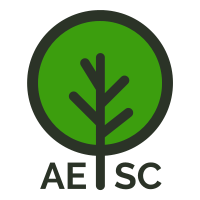While warnings from the climate science community are growing, the Paris Agreement is not being respected by any member country of the United Nations. What are the reasons for such a failure? How to cure it ? In the meantime, new challenges have emerged, which still played a rather minor role in the 2015 negotiations but which, with the 15th Conference of Parties (COP) for the Convention on Biological Diversity in Kunming (Yunnan province, 2021), are coming on the front of the stage of political concerns: the sixth mass extinction is currently underway. The erosion of biodiversity complicates our understanding of the Anthropocene and requires a finer understanding of how the ecological reconstruction of the planet can be implemented.
2015 was also the year of publication of the encyclical Laudato Si’, which constitutes a major turning point in the way in which the Catholic Church is positioned with regard to the ecological question. In 2020, Fratelli tutti stresses that the ecological reconstruction cannot be done at the expense of the poorest. More than ever, the cry of the Earth resonates with the cry of the poor. In addition to the growing complexity of the challenges brought about by our ecological polycrisis, there is a demand for justice. How to meet these challenges in a fair way?
This international conference will offer an interdisciplinary platform for dialogue between the scientific community and that of ethicists and philosophers concerned by the imperative of justice. It is aimed at researchers, students, activists, and decision-makers engaged in the ecological transition. Jointly organized by Georgetown University, the Lassalle-Haus, and Stellenbosch Sustainability Institute, it will lead to Proceedings published by Georgetown University Press.
The debates will take place from 06/21/2021 to 06/24/2021 face-to-face in the superb premises of the Lassalle-Haus, in Bad-Schönbrunn (Switzerland) and by video. We would like them to also be an opportunity, for all the participants, to have a collective experience of overcoming the cognitive dissonance that we all live: we will therefore take advantage of these few days to practice a more sober and sustainable, but joyful, way of life. All contributions that help to understand the complexity of the ecological polycrisis and/or questions of environmental justice are welcome. We invite contributions on topics including but not limited to the following:
– Climate/Biodiversity interactions.
– The economic and financial consequences of climate change
– The economic and financial consequences of biodiversity erosion.
– Green Accounting
– Material Footprint Accounting
– The political economy of the ecological shift
– Environmental Justice and Biodiversity erosion
– Laudato Si’, Fratelli tutti and the challenge of preserving biodiversity
– Indigenous People and Biodiversity
– How does business contribute to the preservation of biodiversity?
Submissions for individual papers may be in English, German, French or Italian, and should be sent in the form of an abstract (250 words) to ej2021@lassalle-institut.org by March 1, 2021. For session proposals a separate abstract for each paper should be included. All abstracts will be reviewed by an academic committee. Notifications of acceptance will be announced by April 1, 2021.
Registration and reservation of rooms in the Lassalle-Haus will be available from April 1, 2020.
– Participation fee: CHF 300
– Costs for accommodation, incl. board and lodging
– Accommodation in single room with sink/ shower on the floor: CHF 502 or
– Accommodation in single room-suite: CHF 621
In preparation for the conference, a webinar will be organized, which will take place approximately 3 weeks before the conference.
Long-term networking opportunities for early career researchers will be offered, especially focusing on publications, project ideas and follow up meetings.
conference sponsors: Georgetown University, Washington DC, USA, together with Lassalle-Institut, Kanton Zug, Switzerland and the Sustainability Institute, Stellenbosch, South Africa
Organizers: Gaël Giraud SJ (Georgetown University); Tobias Karcher SJ (Lassalle Institut), Mark Swilling (Stellenbosch and Georgetown University).
